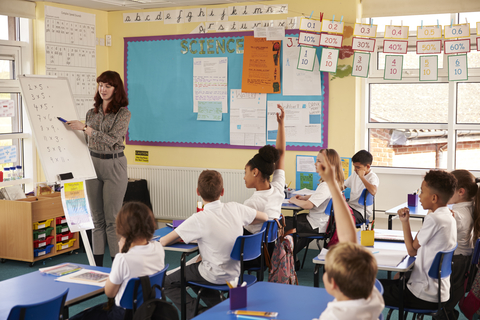Schools play a critical role in helping young people develop skills and talents which are useful in both personal and professional contexts. Many believe that a primary goal of the education system is to prepare students for work. Currently, Australian Schools do so by encouraging students in the last years of high school to participate in work experience programmes.
Schools can go one step further. If they teach students about the importance of managing money, and more complex financial concepts in an age-appropriate way, children leave school will leave School as financially responsible people.
When Should Children Learn Financial Concepts
The concept of money and its importance should be introduced in early childhood. More complex conversations with teachers and parents about finances can take place regularly as the child grows older.
Ideally Pre-schoolers learn from parents and teachers that:
- You need money to buy anything and everything.
- You earn money by working.
- There is a difference between needing and wanting things.
- Different coins and notes have different values
Primary Pupils should be:
- Encouraged to compare prices in terms of value for money.
- Warned about the dangers of online shopping, and advised never to share personal information online.
- Taught about the value of savings
- Be taught how to draw up simple budgets.
High School Students can be introduced to more complex concepts. Both primary and high schools could extend student knowledge of key financial concepts by offering classes where money matters are discussed in detail.
Six Topics I wish I’d Explored in High School
Personally, I wish I had been introduced to certain money management and financial concepts sooner. Exploration of these concepts at high school, coupled with parental guidance at home, benefits young people by preparing them for financial responsibility.
The Purpose of Taxes
The first thing I knew about taxes was that people usually complained about having to pay them. I found out later that the government collects tax to pay for the welfare system and health services, and that taxes also fund initiatives and public works that benefit the community as a whole.
It would be good if high-schoolers learnt about:
- Why taxes are important and who benefits from them.
- How to pay tax and shop around for a reliable accountant if you find keeping on top of your tax difficult.
- How to register for a Tax File Number, and when you may need to do so.
- The importance of honesty and contacting the ATO if you have questions about paying tax or are unable to pay taxes.
Students can even visit organisations such as hospitals that benefit from taxpayer money and find out firsthand why it is an important source of revenue for them.
Online Banking: Advantages, Disadvantages, and Dangers
In today’s world, online banking services are ubiquitous. Everyone must learn how to navigate this rapidly growing online world safely. Most people are likely to use online services as a consumer, an employer or employee, or a bank customer.
It is important that School Students learn:
- How to keep their bank details safe and check their accounts regularly for signs of suspicious activity, and where to go for advice if their account is compromised.
- What services online banks offer and how to assess their usefulness.
- How to pay bills online, the importance of doing so in a timely manner, and what businesses or organisations facilitate this.
- The advantages and disadvantages of paying bills online, and what alternatives to online banking exist.
Cash versus Card and Credit versus Debit
- Using a debit card is preferable to using cash in most cases, as it is easier to keep track of your expenses.
- Avoid the lure of credit cards, unless you are prepared to pay the debt before interest accrues. A debit card will only allow you to use money that you already have in your account.
Saving Money
Teach students the importance of saving regularly a percentage of their income, to practise this and how to budget. Teachers and parents can set up artificial bank accounts to teach young people about paying bills, redeeming credit for cash and interest rates, before they progress to using real money.
Buying versus Renting a Home
Older high school students need to learn how to find and keep a suitable place to live. This includes:
- Identifying reasonable rent or sale prices, and factors which influence them.
- The financial pros and cons of buying versus renting, plus the other advantages and disadvantages.
- Understanding your rights and responsibilities.
- Learning what is involved in entering into a contract as a leaseholder or buyer.
Handy Hints for Teaching Money Management
- Encourage primary pupils to earn pocket money by helping around the house.
- In high school, students may look for a suitable part-time job. Of course, best results come from balancing a job with free time and study time. More than 20 hours of work per week can jeopardise academic success.
There are different ways to teach young people how to manage money and how to engage in financial transactions. The key is to start early, allow children to practise by managing their own money, and to discuss money matters regularly.

